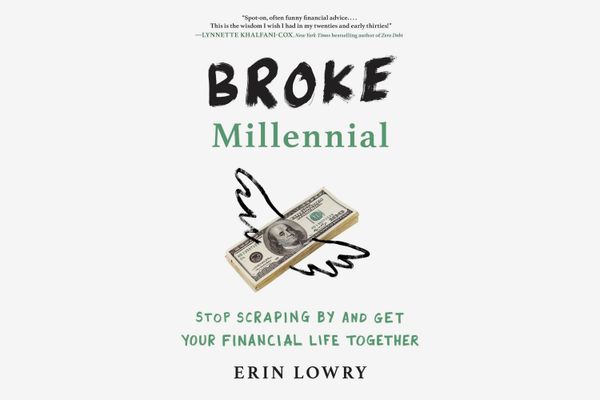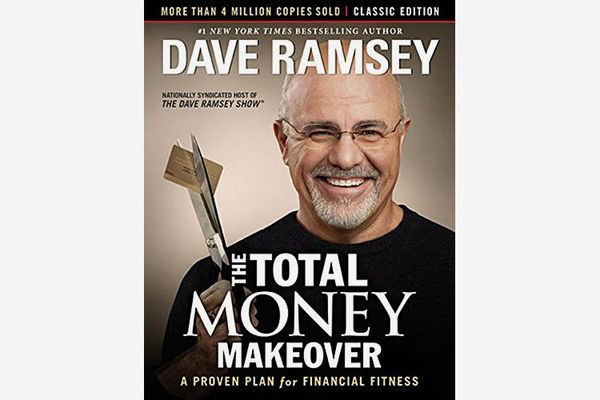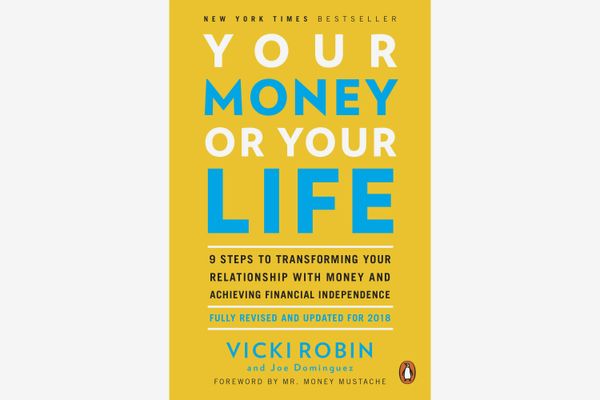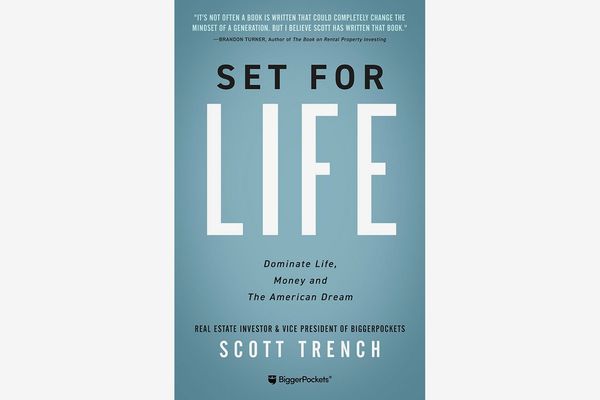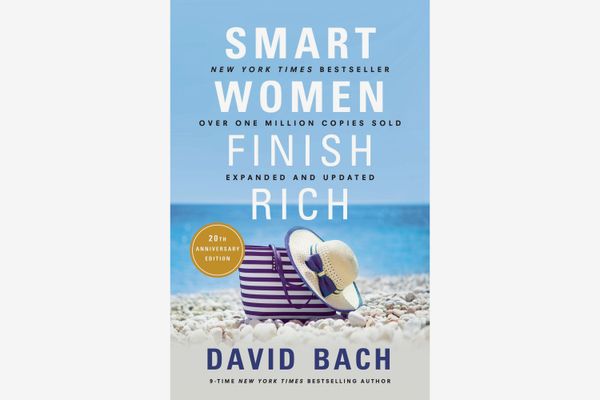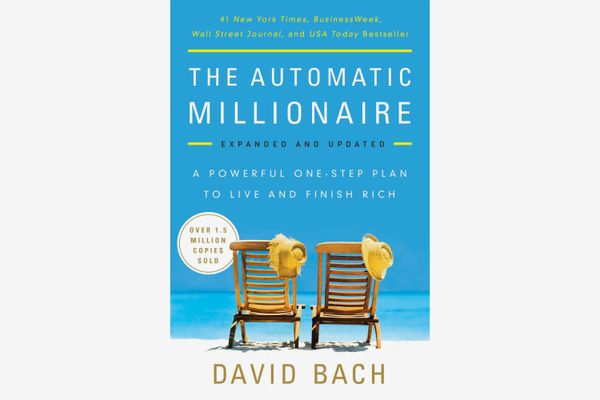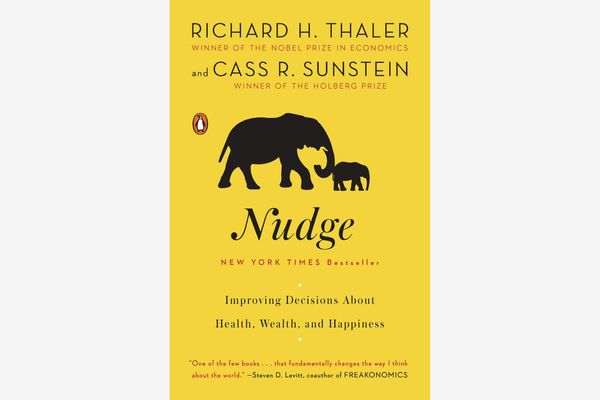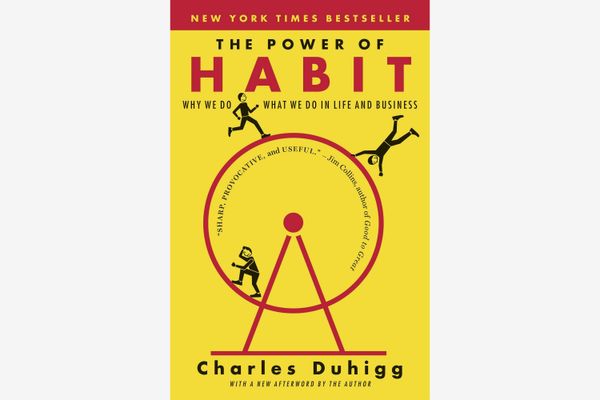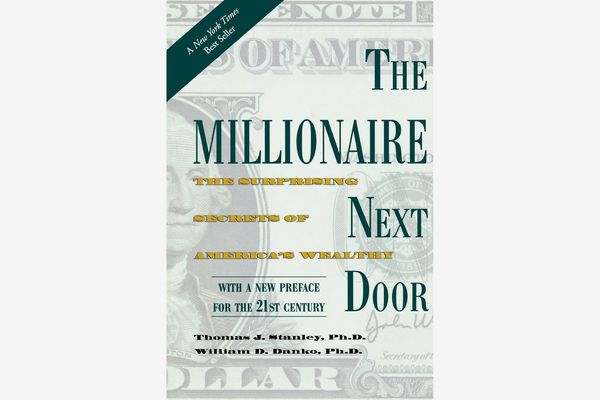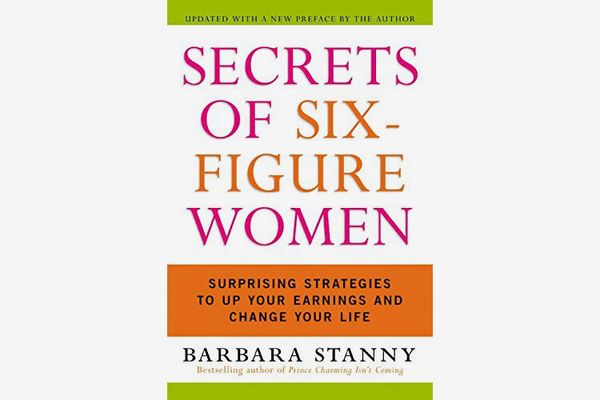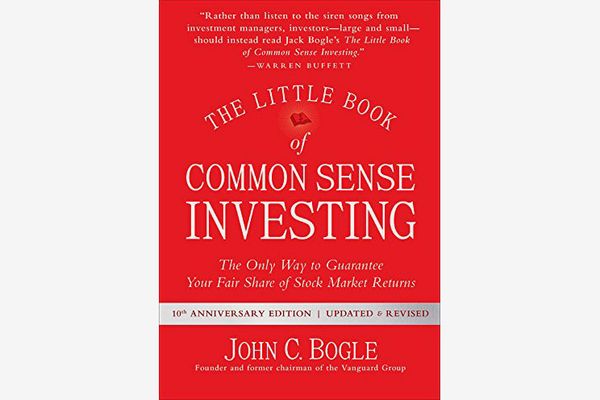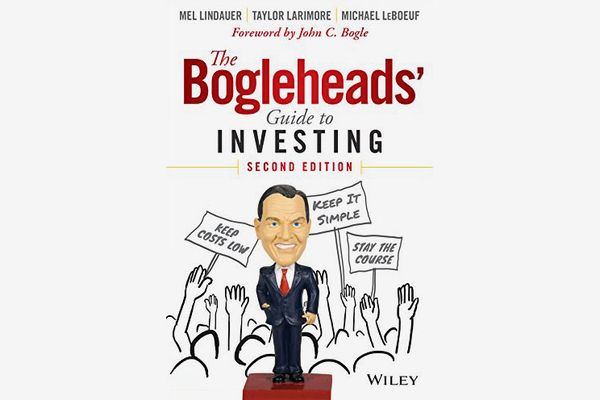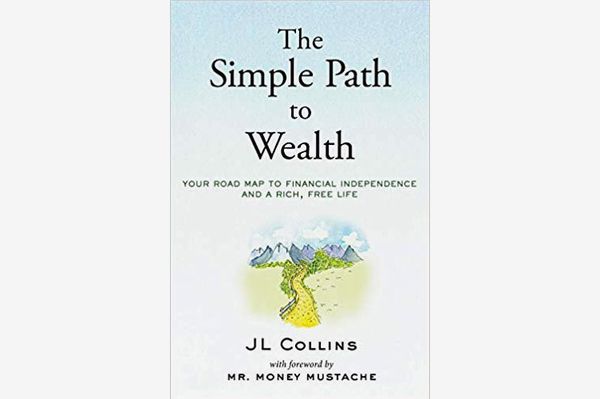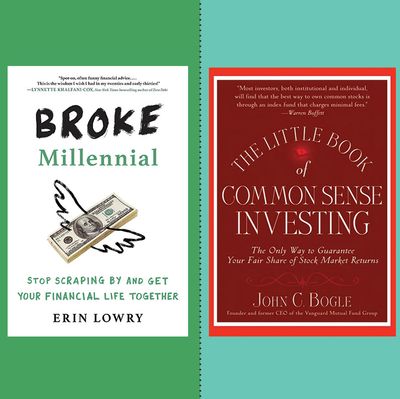
Welcome to Reading Lists, comprehensive book guides from the Strategist designed to make you an expert (or at least a fascinating dinner-party companion) in hyperspecific or newsworthy topics, from microdosing and psychedelic therapy to French cooking. Here, a selection of books on personal finance to help you get out of debt, design a budget, and make smart investments.
Right up there with exercising, eating healthy, and KonMari-ing your closet, saving money and sticking to a budget are two of the more popular New Year’s resolutions. And it makes sense. Between student loans, paying rent, and juggling everyday expenses, most of us haven’t taken the time to think about building an emergency fund, planning for retirement, or investing; and the world of finance, with its complicated terminology and mathematical formulas, can all feel a little overwhelming.
While there are lots of books out there on how to earn, save, and spend money, it’s not easy to know which ones are applicable to your own goals. To find the best personal finance book for wherever you are in your money journey — from making a budget for the first time to decoding stocks and bonds — we asked ten money experts (financial planners, journalists, podcast hosts, and authors) for their picks. To earn a spot on the list, each of these titles had to be recommended by at least two members of our panel.
Best books for beginners
If you feel clueless about budgeting or overwhelmed by student loans and other expenses, Broke Millennial by personal finance expert Erin Lowry came recommended by five of our experts as the best place to start. The book is aimed at 20- and 30-somethings who are dealing with both paying off debt and beginning to plan for the future. Gaby Dunn, author of Bad With Money and host of the podcast of the same name, says, “I like the focus on younger people because a lot of finance books are for upper-class, middle-aged people.” Personal finance expert and author of You’re So Money, Farnoosh Torabi says, “Every generation has its definitive money book, and in many ways, Broke Millennial captures the financial zeitgeist of this generation so perfectly.”
With chapter titles like “Paying Rent to Your ‘Rents” (about the financial benefits and pitfalls of moving back home), and “Retirement: Can It Ever Happen for Me?,” it makes sense that Jessica Moorhouse, a Canadian accredited financial counselor, recommends reading Broke Millennial “to learn all the basics of finance in a relatable way.” Personal finance bloggers Grant Sabatier, author of Financial Freedom, and Ashley Feinstein Gerstley, author of The 30-Day Money Cleanse, agree that the book’s approachable tone and practical tips make it a great starting point for learning about everything from our emotional relationship with money to investing and planning for retirement.
Best known for his financial advice radio show The Dave Ramsey Show, Ramsey’s book offers a simple plan for getting out of debt and saving for emergencies and retirement. Jonathan Mendonsa, co-host of the finance podcast ChooseFI, says it “tells a story, is engaging, not overcomplicated, and if you follow it, you’ll be able to keep up with your budget.” He says it’s best for readers in their early 20s looking to get started with financial planning. Nick Holeman, senior financial planner at Betterment, says “this book highlights [Ramsey’s] famous ‘seven baby steps’ to gain control of your finances and gives people a newfound sense of agency.” He calls it “a critical stepping-stone for anybody who is struggling with debt, which is most of America.”
Best books for achieving financial independence
Recommended by four of our experts, Your Money or Your Life encourages readers to take a step back and think about the their ultimate goals and how much money they’ll need to get there. Sabatier says, “The simple premise of the book is the question: How much money are you willing to trade your life for? Whenever you’re working, your trading your life and energy for money. What does that mean to you?” Once you’re clear on the “why” behind your saving and spending, making decisions about investing and budgeting becomes much easier. Torabi says author Vicki Robin is “the O.G. who put the ‘personal’ in ‘personal finance.’ She was among the first to inspire us to create a financial road map that aligned with our core values and goals.”
Moorhouse points out that the book is a good introduction to the “financial independence, retire early” movement, or FIRE, popularized by bloggers like Mr. Money Mustache who practice extreme frugality and smart investing to retire young and devote more time to their passions. According to Holeman, “That shift frees you to spend your time and money in a way that maximizes your happiness, something that surprisingly very few of us actually do.”
In Set for Life, another favorite in the FIRE movement, author Scott Trench, CEO of the real estate investing site BiggerPockets, outlines a plan of prioritizing saving over earning and making good investments. Mendonsa says it’s great “for helping someone go from a standing start to where working is optional in a relatively short period of time,” and Sabatier says he recommends it for “younger people who want to live life on their own terms as quickly as they can.” Instead of buying into the traditional American dream, which, as Sabatier says, “is actually built on debt,” Trench emphasizes figuring out your own values and how you really want to use your time and money. That could mean pursuing travel instead of home ownership or biking instead of buying a car to save for early retirement.
Best books on developing good money habits
If you’ve heard the advice that if you simply cut out buying a cup of coffee per day you could save more than $1,000 in a year, you’re already familiar with author and financial expert David Bach’s signature “latte factor.” Aimed at women but applicable to anyone looking to take control of their finances, the book explains how simple tweaks can lead to big savings, how small investments now can pay off big later, and how to stop living paycheck to paycheck. Torabi says, “Bach’s book was my first okay-let’s-get-my-money-situation-figured-out-for-real read,” and Gerstley credits it with kickstarting her knowledge of financial planning. She personally embraced the latte factor and realized she’d rather skip her morning coffee and be able to afford a big trip.
Another book by Bach that was popular among our experts, The Automatic Millionaire describes how to take the hard work and willpower out of the saving equation by automating your saving and investing. Moorhouse says it’s “a classic read to learn why it’s so important to set up a cash-flow system that works and to be mindful of all those little expenses,” and Sabatier says Bach’s work is so influential that “automation now is the status quo.” Jean Chatzky, a financial journalist and the author of Women With Money, agrees that it’s “terrific,” and says Bach “has keyed into the fact that changing your habits in a way that you can stick to them, and knowing what’s meaningful to you in your own life and prioritizing that, is what’s going to help you succeed.”
Best books on the psychology behind money habits
Skipping your morning coffee run sounds easy in theory, but in practice we know there are a host of emotional and psychological factors getting in the way of our making such a simple change. The next two books, both favorites of Chatzky’s, delve into how we make decisions and how, by better understanding our reasoning, we can make better choices. Holeman says the book “does a brilliant job at pointing out the many behavioral and emotional biases human beings have, and real-world examples of how we can overcome them to make better choices with our money.” Co-author Richard H. Thaler won the Nobel Prize in economics for his work in behavioral economics.
In the same vein as Nudge, journalist Charles Duhigg’s book examines what habits are, how they’re formed, and how we can leverage that knowledge to build habits that’ll benefit us in the long run. Ramit Sethi, best-selling author of I Will Teach You To Be Rich, says “habits form the very foundation of our behavior that drive[s] us toward our goals — with health, relationships, business, and yes, money, too. Building habits is absolutely crucial.” Chatzky adds that while it’s “not exactly a money book, if you take in what he’s trying to teach you, it’ll really revolutionize your financial life.”
Best books on the ‘millionaire mindset’
In The Millionaire Next Door, a top pick for three of our experts, business professors Thomas J. Stanley and William D. Danko reveal the seven common traits they’ve found among millionaires in their years of researching the behaviors of the wealthy. Holeman calls it “far and above my favorite book on personal finance,” and Sethi, who also recommends it, asks, “If you want to be rich yourself, what better way to learn than to study those who are rich?” Interestingly, the habits of the rich aren’t what you might expect. Sabatier, also a fan of the book, says, “The vast majority of millionaires in this country are the people driving the frugal cars and living in normal houses.” Instead of living flashy lives, the millionaires Stanley and Danko studied practice frugality and acquire wealth not through high-profile jobs but by managing their money in the right way.
Like The Millionaire Next Door, this book breaks down the mind-set that successful people share, but author Barbara Stanny’s exclusive focus on wealthy women yields a new set of lessons that anyone looking to boost their net worth can learn from. Kimberly Palmer, a financial writer and the author of Smart Mom, Rich Mom, says, “I find it super inspiring. The central message is that we have to believe in our own self-worth and that we deserve to earn a healthy income. She helps us overcome any confidence issues that are getting in the way of that.” Kristin Wong, author of Get Money, says “this book completely changed my career.” As a freelance writer, Wong says she didn’t feel comfortable asking for more pay until she read Stanny’s book. “To prove her wrong, I conducted a little negotiation experiment,” she says. “I vowed to ask every new freelance client for more money and negotiate with my existing clients. I thought they’d laugh in my face. But to my surprise, every single existing client I had agreed to pay me more”
Best books on investing
According to Holeman, “Jack Bogle, the founder of Vanguard, made history with the first index fund.” Low-risk and tax-efficient, index funds track the rise and fall of the overall market and tend to outperform actively managed funds where individual investors decide whether to buy or sell. Holeman likes that Bogle’s book “arms investors with the knowledge of what they should be focusing on, and steers them away from what Wall Street wants them to focus on;” and Moorhouse says it’s “full of finance and investing lingo, but honestly the best book out there to learn about index investing.”
Bogle has also attracted a dedicated group of followers — who call themselves Bogleheads. For more on their philosophy, Sabatier recommends the Bogleheads’ Guide to Investing: “It’s the only investment book I think you’ll need,” he says.
Originally written as a series of letters advising his daughter, J.L. Collins’s book is also, as Mendonsa explains, a “compelling look at why you should be considering broad-based index funds.” Collins shares his philosophy of investing and why he’s wary of traditional strategies. Sabatier says it’s a good pick for those primarily seeking investment advice.
The Strategist is designed to surface the most useful, expert recommendations for things to buy across the vast e-commerce landscape. Some of our latest conquests include the best acne treatments, rolling luggage, pillows for side sleepers, natural anxiety remedies, and bath towels. We update links when possible, but note that deals can expire and all prices are subject to change.
Every editorial product is independently selected. If you buy something through our links, New York may earn an affiliate commission.
